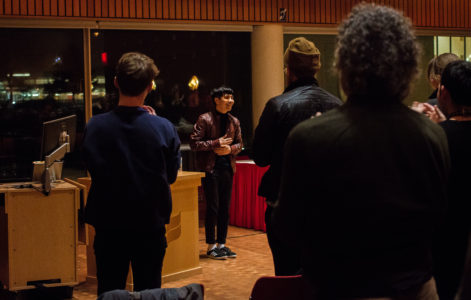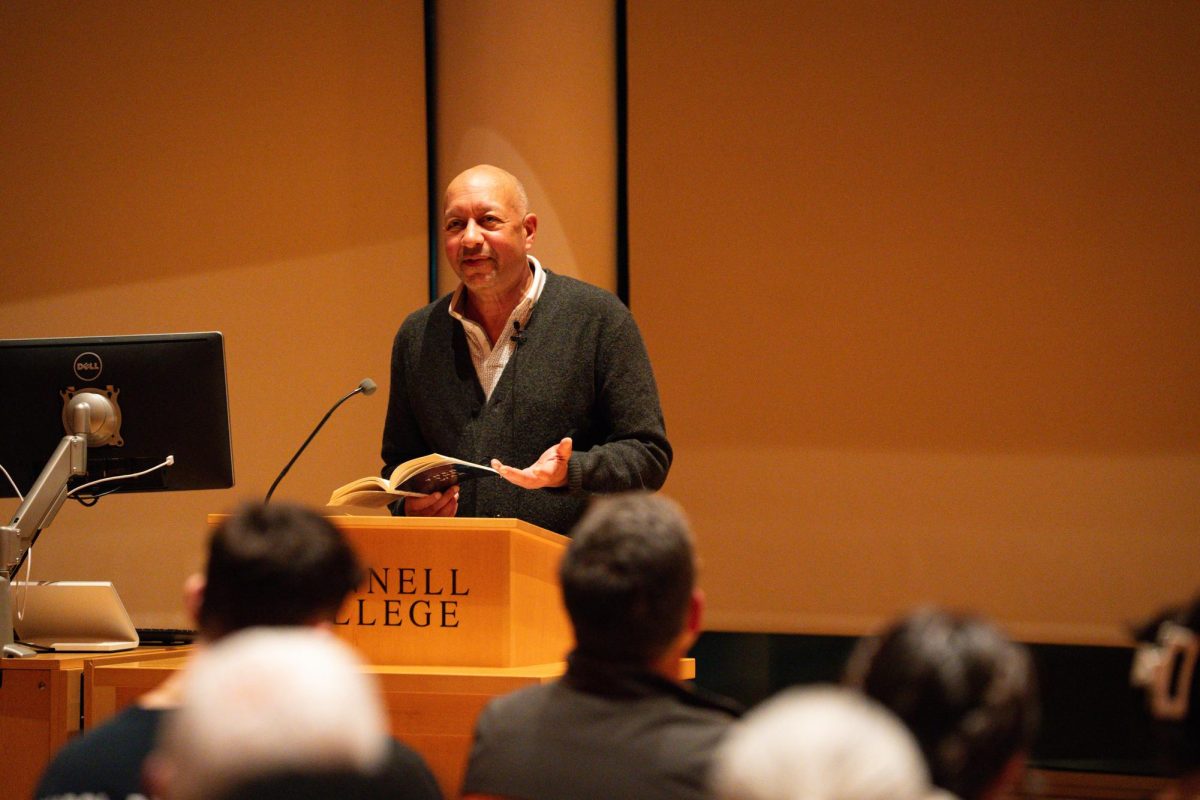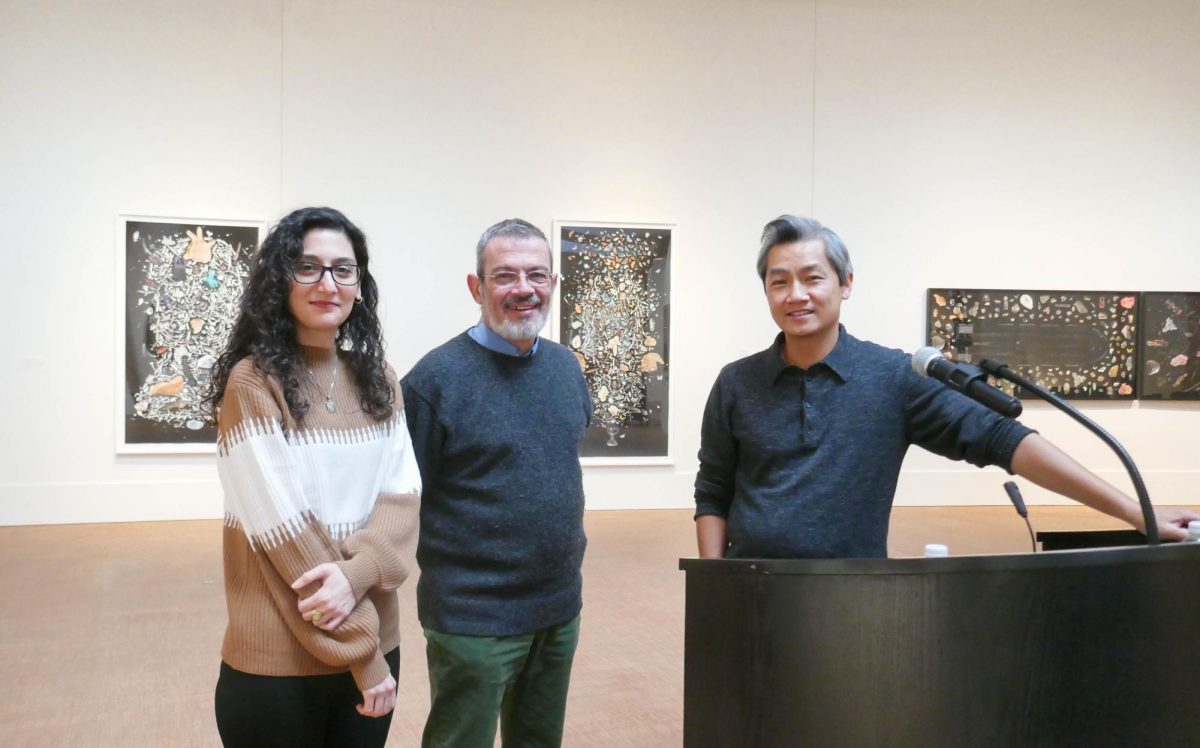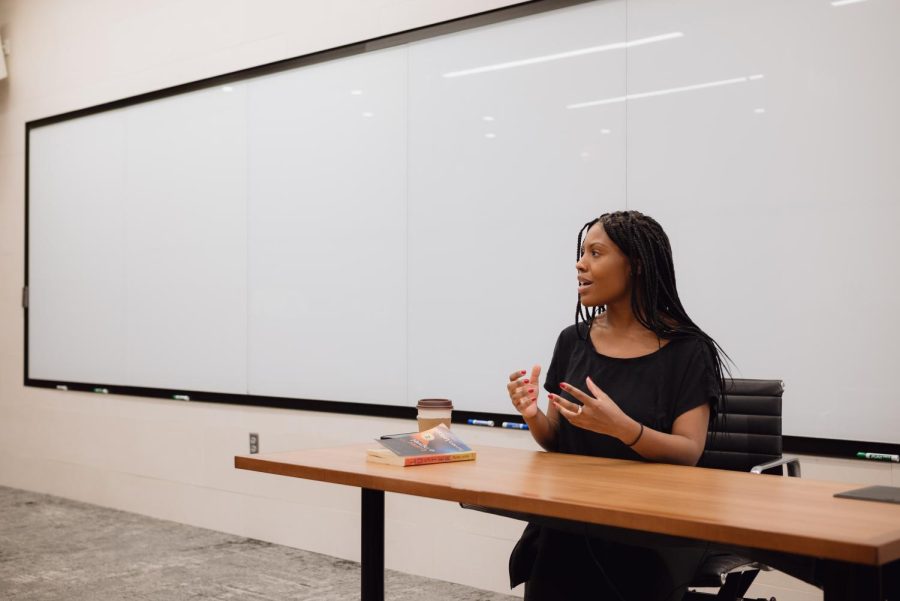by Mayo Sueta
suetamay@grinnell.edu

For this week’s Writers@Grinnell event, the College welcomed poet and essayist Ocean Vuong to campus. He read from his debut collection of poetry, “Night Sky with Exit Wounds,” which won the 2018 T.S Eliot Prize, the Whiting Award, the Thom Gunn Award and Forward Prize for Best First Collection, and was deemed “A Best Book of the Year” by multiple publications including but not limited to The New York Times, The New Yorker and The Guardian, according to his website. His works have been translated into several languages, making him a renowned artist around the globe.
According to The New Yorker, Vuong was born in Saigon in 1988 and later emigrated to Hartford, Connecticut, living in a one-bedroom apartment with six of his relatives. The magazine mentions his poem “Notebook Fragments” as a work in which Vuong talks quite literally about how he came into existence: “An American soldier fucked a Vietnamese farmgirl. Thus my mother exists. / Thus I exist. Thus no bombs = no family = no me. Yikes.”
Vuong is a captivating reader, and received a standing ovation at the reading. His voice stirs up a particular mood while one listens, leading one to wonder what he feels when he writes his works. In an interview for The Creative Independent, he described his mood while writing as “curious.”
“When I’m lost in the work, I’m curious. I don’t know if curiosity is a balm, because it often gets me in trouble, but it gives me control. It becomes fuel, and it brings me out of myself and into the world, even if I’ve just been sitting at my desk and thinking about spirals, which is what I’ve been thinking about this morning.”
At the reading, Vuong talked about the “golden age” of poetry which has come at the sacrifice of many writers’ voices, particularly the voices of writers of color.
“We are in a real golden age of poetry … and … the way these poets support each other … the idea that the fallacy of a hierarchy ruled by one person is starting to be dismantled in ways that are very refreshing. But it took a lot of sacrifices, particularly for POC voices. … For every POC writer you see there’s dozens of phantoms behind them.”
He also talked about the power of language, saying, “Only through language can we get even further. We literally carry language, even after departing, even after we’ve lived and died, we carry magic. As magic. What else can do that?”
Vuong is currently working on a novel, and anyone who has had the opportunity to read any of his previous writings will be waiting in anticipation for his new work.

























































